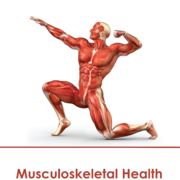Fuel Your Movement: Nutrition and Lifestyle Tips for MSK Wellness
Your musculoskeletal system (MSK) – your bones, muscles, joints, tendons, and ligaments – is your body’s engine, allowing you to move, work, and play. Keeping it healthy and strong is crucial for maintaining an active and fulfilling life. While exercise is essential, proper nutrition and lifestyle choices play a significant role in preventing MSK problems and promoting overall wellness.
The Power of Nutrition for Your Bones and Muscles
What you eat directly impacts the health of your MSK system. A balanced diet provides the building blocks for strong bones, healthy muscles, and flexible joints.
Calcium and Vitamin D: These nutrients are essential for bone health. Calcium helps build and maintain bone density, while Vitamin D helps your body absorb calcium. Good sources of calcium include dairy products, leafy green vegetables, and fortified foods. Sunlight is the best source of Vitamin D, but you can also find it in fatty fish, egg yolks, and fortified foods.
Protein: Protein is the building block of muscle tissue. Adequate protein intake is crucial for maintaining muscle mass and strength, especially as we age. Good sources of protein include lean meats, poultry, fish, beans, lentils, and nuts.
Omega-3 Fatty Acids: These healthy fats have anti-inflammatory properties that can help reduce joint pain and stiffness. They are found in fatty fish like salmon and tuna, flaxseeds, and walnuts.
Fruits and Vegetables: These nutritional powerhouses are packed with vitamins, minerals, and antioxidants that protect your MSK system from damage. Aim for a variety of colorful fruits and vegetables to get a wide range of nutrients.
lifestyle habits for MSK health
beyond nutrition, several lifestyle habits can significantly impact your MSK health.
Maintain a Healthy Weight: Excess weight puts extra stress on your joints, increasing your risk of osteoarthritis and other MSK problems. Maintaining a healthy weight through diet and exercise can definitely help protect your joints.
Stay Hydrated: Water is essential for joint lubrication and overall MSK health. Dehydration can lead to muscle cramps and stiffness. Aim to drink plenty of water throughout the day.
Get Regular Exercise: Regular physical activity, including weight-bearing exercises, strengthens bones and muscles, improves joint versatility, and reduces the risk of MSK injuries. Choose activities you enjoy and that are appropriate for your fitness level.
Practice Good Posture: Proper posture aligns your body correctly, reducing stress on your joints and muscles.Pay attention to your posture while sitting, standing, and lifting.
listen to Your Body: Pay attention to pain signals and avoid overexertion. Rest and recovery are just as significant as exercise. if you experience persistent pain, consult a healthcare professional.
Quit Smoking: Smoking reduces blood flow to bones and muscles, hindering their ability to heal and regenerate. Quitting smoking is one of the best things you can do for your overall health, including your MSK system.
Limit Alcohol Consumption: Excessive alcohol consumption can interfere with calcium absorption and increase the risk of osteoporosis. Moderate alcohol intake is recommended.
Preventing Specific MSK Conditions
Osteoarthritis: Maintaining a healthy weight, engaging in regular low-impact exercise, and ensuring adequate calcium and vitamin D intake can definitely help prevent osteoarthritis.
Osteoporosis: Weight-bearing exercises, a diet rich in calcium and vitamin D, and avoiding smoking and excessive alcohol consumption can help prevent osteoporosis.
Muscle Strains and Sprains: proper warm-up before exercise, using correct lifting techniques, and avoiding overexertion can help prevent muscle strains and sprains.
Back Pain: Maintaining a healthy weight, strengthening core muscles, practicing good posture, and using proper lifting techniques can definitely help prevent back pain.
Key Takeaways for a Healthy MSK System
Prioritize a balanced diet rich in calcium, vitamin D, protein, omega-3 fatty acids, fruits, and vegetables.
maintain a healthy weight through diet and exercise.
Stay hydrated by drinking plenty of water.
Engage in regular physical activity, including weight-bearing exercises.
Practice good posture and use proper lifting techniques.
Listen to your body and avoid overexertion.
Quit smoking and limit alcohol consumption.
further Resources
For more information on MSK health, visit the following resources:
National Institute of arthritis and Musculoskeletal and Skin Diseases (NIAMS)
American Academy of Orthopaedic Surgeons (AAOS)
By incorporating these nutrition and lifestyle tips into your daily routine, you can fuel your movement and maintain a healthy, strong, and resilient MSK system for years to come. Remember to consult with your healthcare provider or a registered dietitian for personalized advice tailored to your specific needs and health conditions.









